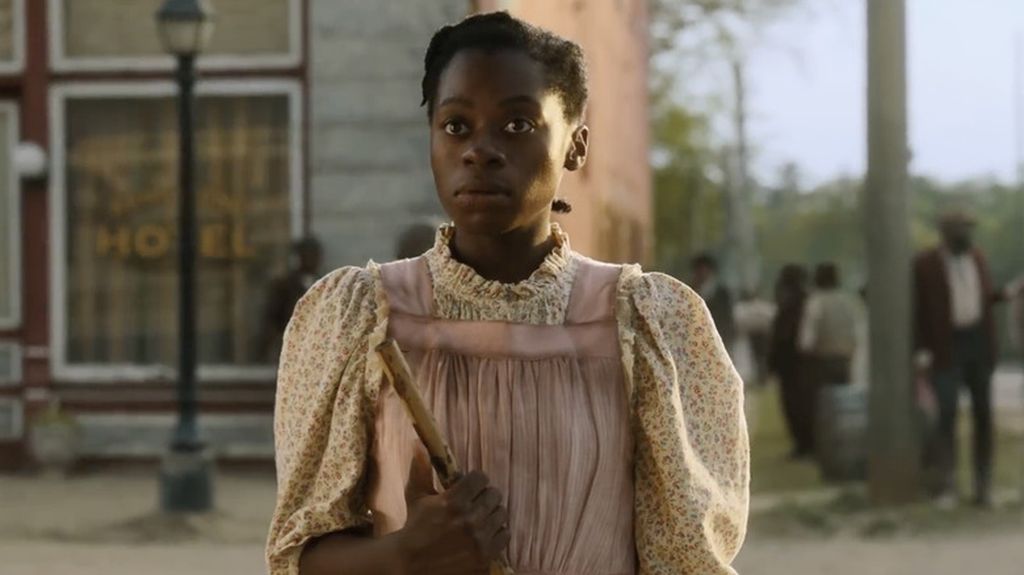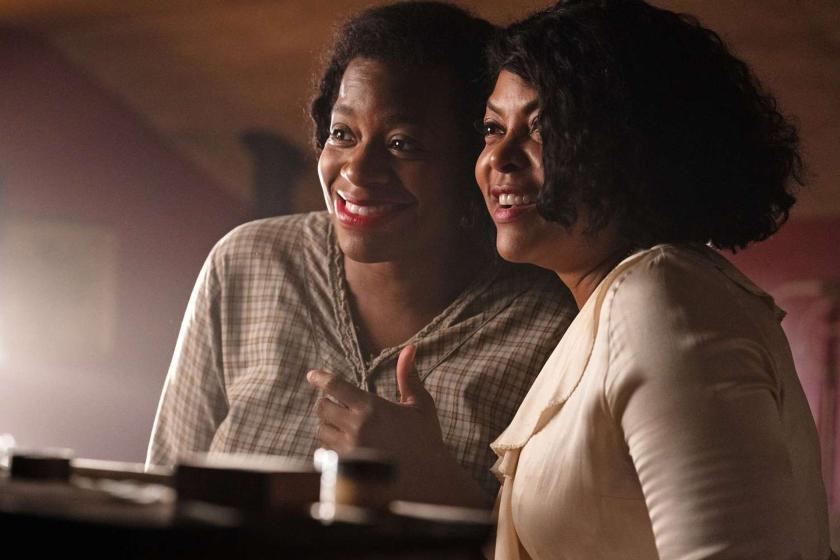How many re-tellings can Alice Walker's The Color Purple take? A helluva lot, as the candid Sofia, one of the work's seminal characters, might put it.
Adapted by Steven Spielberg for the screen in 1985, and then as a Broadway musical that had two entirely different (and lauded) runs, the story of a Southern Black woman's self-empowerment across nearly 40 years is a movie once again, this time drawing on the stage musical and carrying over several alumnae from that show – leading lady Fantasia Barrino included.
Fantasia, as the then single-monikered talent was known at the time, took over from Tony-winner LaChanze as Celie, who is able to push through years of degradation and abuse to find her own voice, an achievement that a musical of course can make palpably clear. Her clarion-voiced epiphany comes with the solo number "I'm Here", the equivalent in this material to "And I Am Telling You I'm Not Going" from Dreamgirls and the song, and part, that brought English performer Cynthia Erivo to international attention. (Erivo is now headlining her own stage-to-screen musical transfer, Wicked.)
Barrino, to give the screen's leading lady her full name, knows her way around both that song, delivered almost yearningly to a camera that soaks in each impassioned phrase, and the story itself. And as abetted by the Ghanaian filmmaker Blitz Bazawule, whose intense connection to the work is at every point evident, a story that can (and has) seemed too sugary or synoptic to fully land here carries real weight, on the way to the communal ending that brings with it the title song – and an appeal to the emotions that defies anyone to leave the cinema dry-eyed.
The psychological arc is, in fact, pretty much the same as Wicked: an abject woman at odds with her body and her sense of self who is enabled to recognise the beauty that is properly hers and that others see before she can. "I'm beautiful and I'm here," is in fact a crucial lyric from Barrino's anthem of self-assertion, and as she extends her arms forward, you're all but tempted to reach out by way of response.  The story begins in Georgia in 1909 with young Celie (Phyicia Pearl Mpasi, pictured above) and her sister, Nettie, exulting in song that everything is going to be alright. How wrong they are, at least at first. Whilst it is acknowledged that "the good lord works in mysterious ways," Celie's upbringing is marked out by malignancy. Raped by her father and then passed on to the hostile "Mister" – that role is well-taken by man of the moment Colman Domingo, himself an Oscar nominee this year for Rustin – Celie needs to find a means of escape.
The story begins in Georgia in 1909 with young Celie (Phyicia Pearl Mpasi, pictured above) and her sister, Nettie, exulting in song that everything is going to be alright. How wrong they are, at least at first. Whilst it is acknowledged that "the good lord works in mysterious ways," Celie's upbringing is marked out by malignancy. Raped by her father and then passed on to the hostile "Mister" – that role is well-taken by man of the moment Colman Domingo, himself an Oscar nominee this year for Rustin – Celie needs to find a means of escape.
She achieves precisely that in the sisterhood of sorts that develops, even as her actual sister disappears to Africa. Celie finds a soulmate of sorts in the feisty Sofia (a dynamite Danielle Brooks, a holdover from the Broadway revival who has garnered this film's only Oscar nod), whose take-no-prisoners fighting spirit survives even incarceration. And Celie is drawn physically as well as psychically to the wonderfully named Shug Avery, the singer to whom Taraji P Henson brings an indelible mixture of street smarts and sass coupled with an awareness of the world that can turn hostile at any junction. (Shug is the one who calls out Celie for her ugliness, an insult that gets washed away with time.)
There are those who resist the marrying of music to this narrative, though quite why isn't apparent, especially given the range of music on offer from the choral sweep of the title song to the jaunty exuberance of "Miss Celie's Pants" and the sultry opportunities afforded Shug: jazz/blues/gospel – they're all on full-throated display in a score from Allee Willis, Stephen Bray, and Brenda Russell that sounds great in this airing of it and might benefit even further from further vocal curlicues so that we can hear the music itself.
Marcus Gardley, himself a playwright of some repute, lends ballast to a screenplay that skips easily through the frequent hardships wrought by time, and Dan Lausten's cinematography – rather surprisingly overlooked by the Academy – is lustrous without appearing to sanitise the storytelling: that was the charge laid most frequently at the Spielberg film, which was nominated for 11 Oscars and won none. (This time out, Barrino got a Bafta nod but not an Oscar one.)
There's a nod to the earlier film in a brief appearance from Whoopi Goldberg, Spielberg's Celie, seen early on as a midwife, and Brooks finds a way to channel the theatrical bravura of her showstopping "Hell No" so that her defiance registeres every bit as potently onscreen. (Celie, tellingly, inherits the song as she comes to understand its meaning.) Not everyone, of course, gets to feast either literally or metaphorically at the bounteous table with which the film concludes, its final reckoning reminiscent of many a Shakespeare play with one or another sibling reunited in time for the final curtain.
But the movie comes by its grace notes as honestly as it pays obeisance to life at its most grim. In all the ways that matter, The Color Purple once again is here.















Add comment